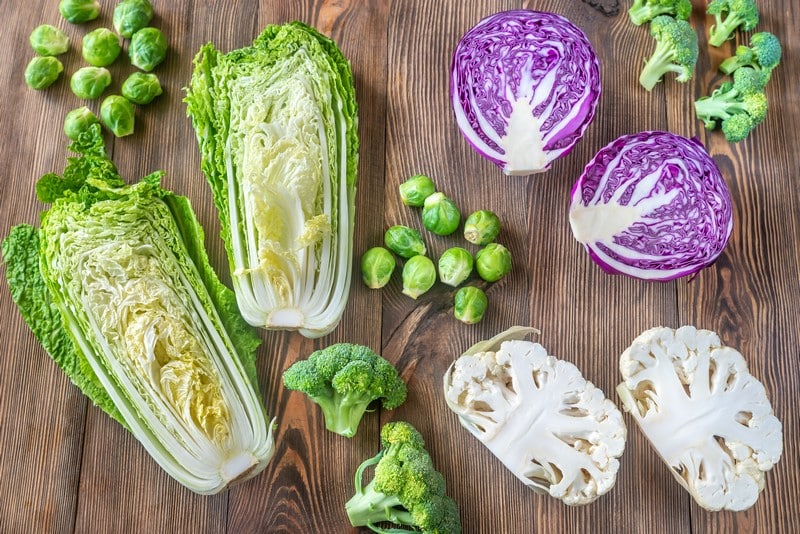Cruciferous Vegetables

Among the vegetables that belong to the cruciferous vegetable family are cabbage, broccoli, cauliflower, Brussels sprouts, arugula, bok choy, kale, radishes, and turnips. Although they are primarily renowned for their anticancer effects, they also provide a remarkable quantity of insoluble fiber. Up to 20 percent of the recommended daily value of fiber may be found in just one serving of cruciferous vegetables. For instance, consuming one cup (76 grams) of raw broccoli will offer around 2 grams of dietary fiber, which is insoluble. This helps to maintain regular bowel movements by adding bulk to your stools.
Cruciferous veggies include glucosinolate. This compound has natural antibacterial characteristics and helps regulate inflammatory responses, stress responses, phase I metabolism, and antioxidant activities. In addition, they have regulatory functions that assist regulate inflammation. Moreover, there is a correlation between having a diverse gut bacteria population and a more robust digestive and immune system. Cruciferous vegetables are an excellent option for avoiding piles because of this. One research reported that the participants’ gut microbiomes became more diverse after daily consumption of cruciferous vegetables.










